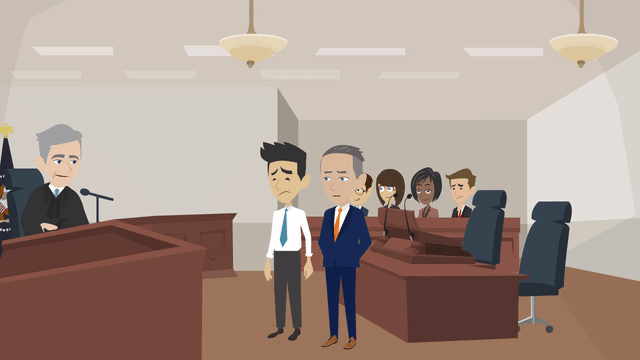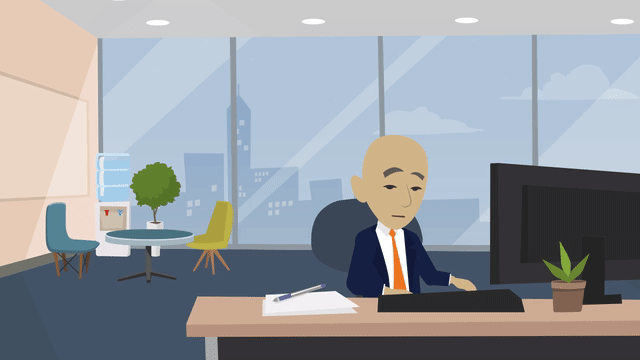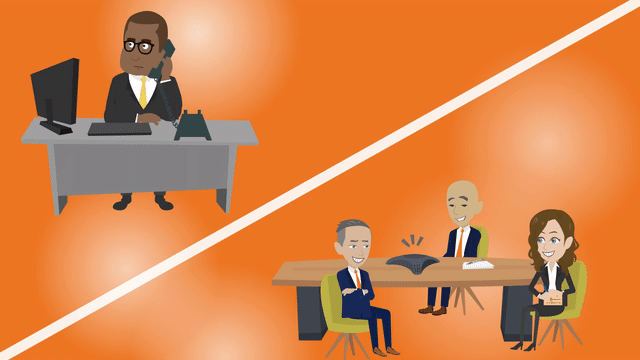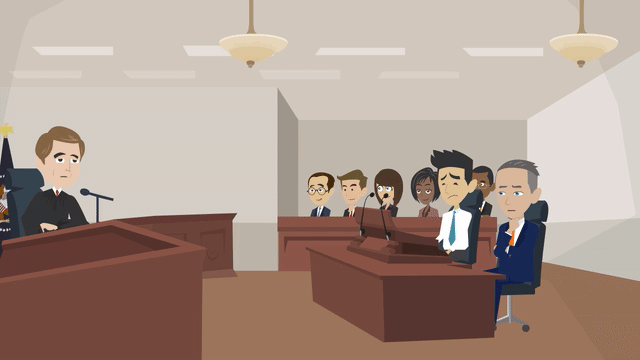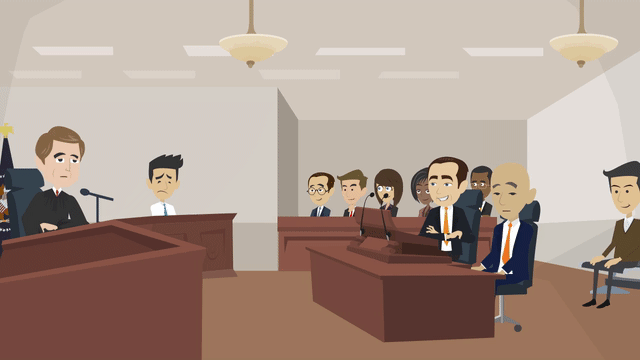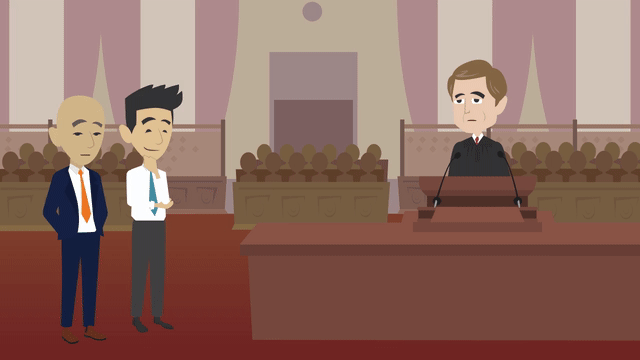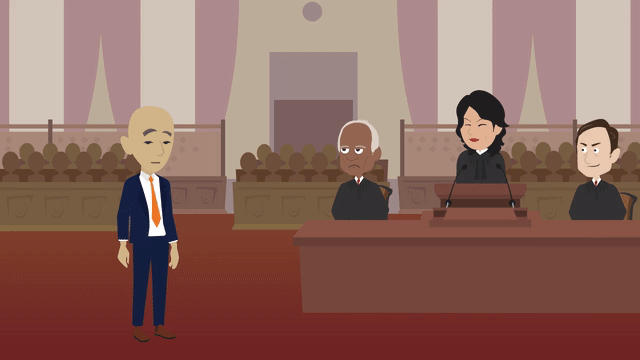Juvenile Offenses | Lawyers & Attorneys
If your child or family member is nineteen (19) years old or younger, and is arrested or under investigation, few things are as terrifying. Whenever possible, the family should act quickly to contact a lawyer who handles these types of matters as the minor is likely too young to understand the consequences and how it may affect their education and employment opportunities in the future.
Hiring an experienced criminal defense lawyer is very important whether your case will be handled in Family Court or in criminal court.
Frequently Asked Questions About Juvenile Offenses
Our criminal defense lawyers provide answers to some important questions below.
Yes. Children under age 19 have three separate and distinct categories they can be placed under, depending on the circumstances: Adolescent Offender, Juvenile Offender, and Juvenile Delinquent. They may sound the same but are handled very differently. Also, there is an additional circumstance that may apply called a “Youthful Offender”.
A youthful offender adjudication is available for anyone between the ages of 14 and 19 who has committed certain criminal offenses.
A person is sentenced as a youthful offender in criminal court only after a resolution of the criminal case by plea or a conviction after trial. A person who receives a “youthful offender” sentence receives the benefit of a sealed record and no criminal conviction but may still have to complete a sentence which may include jail, prison, and/or probation or parole.
Adolescent Offenders are 16 or 17 years old who are charged with a felony. These cases may be handled in criminal court or Family Court. An adolescent offender will start in criminal court and be transferred to Family Court for resolution or trial. In Family Court, the Adolescent Offender label is changed to Juvenile Delinquent, which is much more favorable to the child.
Juvenile Offenders are 13, 14, or 15 years old and charged with a serious or violent felony. As with Adolescent Offenders, the case starts in criminal court but can be transferred to Family Court where they are treated like Juvenile Delinquents.
Juvenile Delinquents are over the age of 7, but less than 18, and do something that would otherwise be considered criminal if done by someone older. If the case remains in family court, the penalties a Juvenile Offender faces are less than an Adult Offender.
Juvenile Delinquents can be any child between the ages of 8 and 17 (“over 7 and under 18”).
Children between the ages of 8 and 12 will receive this designation regardless of the allegations. However, children older than age 12 may receive this designation or the designation of a Juvenile Offender. Children over 16 may receive this designation or the designation of Adolescent Offender.
Ultimately, being treated as a Juvenile Delinquent is BETTER than a Juvenile Offender, which is BETTER than an Adolescent Offender. This is because the potential penalties grow progressively harsher as the child gets older. However, any of these designations are vastly better than being charged as an adult in a criminal court. It is always better for a case to be handled in Family Court if possible.
All children have rights in court, including the presumption of innocence and the right to go to a trial. A prosecutor will handle the prosecution of the case against the child and a judge will hear the evidence against the child. The child has a right to a lawyer, a right to testify and a right to call witnesses. It is critical that a youth is given an opportunity to build a relationship with a lawyer who will do everything possible to ensure the child understands as best they can and protects the child like their own. A criminal or family court lawyer who handles these types of cases can conduct the trial or negotiate a settlement on behalf of the child.
Punishments in the juvenile realm are vast, but can include:
- Orders of Protection
- Payments of Restitution
- Letters of Apology
- Community Service
- Probation or Community Supervision
- Removal and Placement in a juvenile facility
- Jail or Prison, but only if the juvenile is treated as an adult, in criminal court.
When a person is convicted of a crime, a Judge is responsible for determining the sentence that person will receive. This is appropriately called the “sentencing” phase of a criminal case. What some people do not realize, however, is that sentences can vary wildly based upon the discretion of the particular judge assigned to oversee your case and how that Judge feels about the facts and circumstances of your case. A criminal defense lawyer will argue for a youthful offender sentence at the time of the sentencing.
Your child will have a better chance at receiving a YO sentence if your criminal defense lawyer can argue that there is evidence of rehabilitation and demonstration of living a productive life including participation in educational and vocational programs, alcohol and substance abuse treatment and/or mental health treatment, and family and community involvement. If your child lacks a criminal record or played a minor role in the offense, that too will be important.
Yes. Possessing and/or using a fake ID or driver’s license is considered a Class D felony. A criminal attorney will be needed.
@lawyergeorge If I Have A Fake ID Could I Lose My Driving Privileges? #fakeid #criminallaw #law #albanyny
Regardless of your age, possessing a fake ID or driver’s license is considered a serious crime. You can be charged with:
- a Class D felony
- Violating N.Y. Vehicle and Traffic Law Section 509-6 which prohibits any other person to use or possess a license that is not legally their own
- Fraud
- Identity theft
A conviction can carry significant fines, court costs and other penalties, including probation, time in jail, community service, and/or having your legal license suspended.
A conviction can leave a permanent mark on your criminal record which could impact future employment opportunities, educational pursuits, and other aspects of your life.
Timeline of a Criminal Defense Case
- Whether you just made a big mistake, or are being falsely accused, this can be a very emotional and important time in a case
- It is very important that you remain silent and not answer any questions about the case without a lawyer present
- Contact a criminal defense attorney as soon as possible
- Confirm the lawyer is an experienced criminal defense lawyer
- Meet with the lawyer who will help you understand the process of a criminal case
- If you have been arrested, critical proceedings and time frames begin immediately
- You will appear before a judge who will determine if you will be incarcerated, released on bail or supervision, or released without conditions
- If you are charged with a felony in a town, village or city court, the prosecuting agency will have six months from the date of your arrest to determine whether to present your case to a grand jury to seek an indictment or return your case to a lower court to be handled as a misdemeanor
- Discovery is the exchange of information between the governmental agency prosecuting you, you, and your attorney
- In New York State this process begins shortly after your appearance in court
- You can expect exchange of the following if it exists in your case:
- Police Reports
- Investigative Notes
- Videos / Body Camera Footage / Dash Camera Footage
- Forensic Reports
- Photographs
- Exculpatory Material (Brady)
- Impeachment Material
- You and your attorney may also be engaged in information gathering that includes:
- Freedom of Information Law (FOIL) Requests/Responses
- Additional Witness Interviews
- Expert Evaluations / Disclosures
- Motions are written applications to the court to request any of the following:
- Preclude Evidence
- Suppress Evidence
- Seek a Ruling on a Constitutional Rights Violation
- Seek Outright Dismissal of One or More Charges Based on Legal/Factual Matters
- Request Hearings
- A plea bargain is an offer from the prosecuting attorney to resolve your case
- Whether to plead guilty or not is always a choice you get to make, not your attorney
- Your attorney will meet with you, discuss the facts and the law of your case, and offer advice. A plea offer takes into consideration your charges as well as:
- Prior criminal history if any
- Life experiences
- Evidentiary Problems
- Post-Incident Actions
- Mental Health Counseling
- Substance Abuse Treatment
- Anger Management Treatment
- If you choose not to accept a plea bargain and are heading to trial, there are likely to be hearings to consider the following:
- Preclusion/Suppression of Evidence
- Admissibility of Evidence
- What Prior Criminal History/Bad Acts May Be Introduced by the Prosecutor if You Testify on Your Own Behalf
- During a hearing, there is no jury, and the judge will make factual and legal determinations regarding what evidence will be allowed at trial.
- You have the right to a trial by a fair and impartial jury or by the judge who will act as both judge and jury
- At a trial, the prosecution has the burden to prove your guilt beyond a reasonable doubt
- The judge or jury will listen to the evidence presented and the arguments by the lawyers, apply the facts to the law, and render a verdict of not guilty or guilty
- A Verdict must be unanimous
- If you are convicted at trial, or if you entered a plea bargain, there will be a sentencing date where your punishment will be imposed by the judge
- If you previously entered a plea bargain, the judge will likely impose the agreed upon sentence at that time
- In the event you are convicted, you have the right to appeal
- This is true whether you plead guilty or are convicted after trial
- However, by accepting a plea bargain, you may have waived some of your appellate rights
- It is important that your attorney file a notice of appeal on your behalf and that you discuss the appeal process with your lawyer
LaMarche Safranko Law Testimonials
“Dear Andrew and George,
I cannot thank you enough for your hard work, diligence, and selfless manner that you put towards my legal difficulties in Colonie. From the first moment I met you, you helped reassure me that things were going to turn out in a more favorable manner than I originally thought. Clearly, the final result of my court case displays the quality of time and work that you put into this….
“I cannot thank George E. LaMarche lll and his team for the excellent legal work they provided for my son, and in extension, our entire family. His experience, knowledge of the law, networking ability and communication is second to none. In our case, our son was wrongly accused by a small town police officer and charged with 5 tickets…
“I am an attorney who found himself in the middle of a serious, personal legal matter that compromised not only my personal life but my professional life as well. I immediately contacted Andrew (Andy) Safranko, Esq. Andy worked tirelessly and extremely hard to bring my legal situation to a very favorable resolution. In so doing, Andy not only saved certain aspects of my personal and professional life…
“The staff at LaMarche Safranko Law took care of whatever I needed, it was just fabulous. It was top shelf, if I called, I got George. If he was in a meeting, they left him a message. He called me right back after the meeting. Everybody was very courteous and very nice there. If I left a voicemail, everybody got back to me quickly. The level of service was very, very good and I would Highly recommend them.”
“Dear Mr. Safranko,
Thank You so much for answering my question, and so expediently!
The dedication, respect, and consideration with which you treat your clients, current and past, is remarkable. It is why I reached out to you when searching in my time of need, and why I would highly recommend…
“I wanted to express my deepest appreciation to Mr. Andrew Safranko for the exceptional job he did in regards to my legal representation. Mr. Safranko displayed the utmost in professionalism and discretion during the entire court process, and took the time to explain each and every step….
“I wanted to take this opportunity to thank you for your excellent representation on my recent matter. I have worked with lawyers, and in law firms much of my professional life, but I have never encountered the rare mix of skill, integrity and humanity in one individual—you….
“Throughout the attorney client relationship regarding my personal injury lawsuit, George and his staff continually exhibited tremendous amounts of legal knowledge, skill, and a vast amount of expert resources that ultimately resulted in a final judgment in my favor. George was there every step of the way to explain where we stood and what to expect next and there was never a need to question his professional judgment…
“I can honestly say that the best decision I’ve ever made was retaining George LaMarche as my attorney. I was in a situation where everything wasat risk; my career, livelihood, and the ability to provide for my family. In desperation, I contacted over a dozen attorneys. The majority of the lawyers I spoke with promised results without seeing paperwork or knowing valuable facts….
“The arrest of my husband in 2008 was an extremely difficult and emotional time for our family. The arrest turned our lives upside down. It was sudden and unexpected and had tragic emotional as well as financial consequences. I had no idea what to do under the circumstances….
“No one likes to be in a bad situation, but if you need a lawyer George is your man. Not only does he point you in the right direction he offers good advice for your future. As much as we bring him business he does not encourage that next time anticipation….
“Dear Andy,
Thank you so much for everything you have done for our son over the last three years. This has been a very challenging time for our family and the knowledge that our son has an attorney as capable and amazing as you are has given us peace of mind!
“Dear George, Andy and Staff,
Thank you all for your kindness and all your help in getting back to my wellbeing and life. I could not have done it without you all. Everything is going so well again. I recommend you highly. Thanks Again!”
“My family and I cannot thank George and his staff enough for all of the support and guidance they have given us over the past six months. Anyone who has ever suffered a personal injury knows how difficult they are to overcome, but I’m glad we had such an intelligent and hardworking attorney on our side so I could focus on my recovery rather than on the details of the case….




